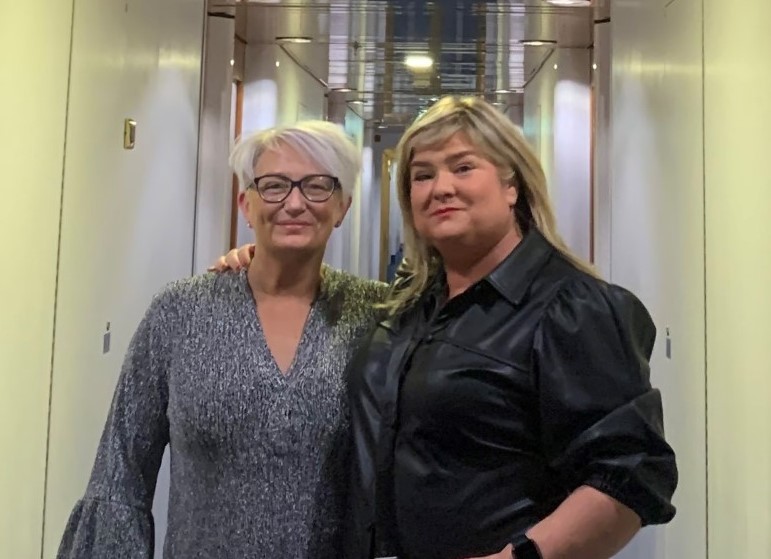Marie Fagan has been working in specialist cleaning since 2007. She is the Managing Director and founder of MD Cleaning. Based in Shotts, the company has 13 staff.

How did your partnership with Future Pathways start?
About five years ago, Future Pathways reached out to me. We helped them with a flat in Edinburgh. It gradually grew from there and eventually we started cleaning properties in Glasgow, which we still do. We now do about five per week for Future Pathways.
What happens when you start with a new client? Is there a process?
We always like to meet the clients first, to build a rapport up with them: to make sure that they’re not feeling uncomfortable, and that they know we’re not there to judge, things like that. Then we try and involve the clients as much as we can. In that first consultation, we’ll make a plan for where they want to start first.
Then we normally don’t work any more than four hours per session, or six hours at the most, because it starts getting a bit too much for the clients. But we’re very good at judging that. We’ll know that they’ve had enough for today, and we’ll go, and then we go back the next week. We usually clean each property once a week.
Depending on the client, we might give them a wee task to do for us before we come back the next week. Or we just tell them just to just leave it and we’ll pick up where we left off the next week. It just depends on the person: everyone’s different, so you judge what’s best with each person.
So your service is a lot more than the actual cleaning?
Absolutely. It’s really about understanding. Empathising with the client, and understanding when they want you to stay and when they want you to go.
But in other ways we treat clients just as we would treat any other person. We chat away to them while we’re working. We try and involve them. Or some people prefer to just sit and chat to us, so we let them do that. Because for some people, sometimes the company is just as helpful as the cleaning.
“It’s really about understanding. Empathising with the client.”
They’re always, always, always delighted with the service. Some of them are in awe, because it had just got so much that they just thought there was no way to fix it. Then we work for four hours, and we do loads and loads of stuff, and it just gives them a great spur on.
And we feel great when we finish too, because we can see a difference in the clients and their mood.
How long do you work with each client?
Usually, there’s a contract made first. At that first consultation, we can assess the property and we put a plan in place on how long we think it’s going to take for us to get the house done. It could be one four-hour session, it could be weekly sessions for several months. Again, it all just depends on the individual in the house.
For example, if someone doesn’t really have organisations skills, we can go in a couple of hours a week and teach them how to clean. We can teach someone how to look after their house, which is great.
How do you apply the principles of trauma-informed practice in the work that you do?
They key thing for us is to empathise with people, really. Their frame of mind is a priority over the cleaning, no matter what day we go. We do get a lot where we can go to the door and they don’t let us in, or they cancel just before we go, or they cancel the night before. We don’t push the fact because obviously, they don’t want us in that day, so that’s fine.
It’s really just treating the person as a human being, and as an individual who has particular needs and limitations, like all of us do.
“I find that with all the Future Pathways Support Coordinators that we speak with, they feel the same way we do. It’s not just a job to them.”
You’ve been quite close partner with Future Pathways for a couple of years now. Does the relationship work for you?
They’re brilliant. They’re great. We work with the Support Coordinators, and bounce off them as well.
So we’re very grateful that we’re able to help people registered with Future Pathways, and we’re always happy to.
It seems that MD Cleaning and Future Pathways are very closely aligned in your approach and your values?
I find that with all the Future Pathways Support Coordinators that we speak with, they feel the same way we do. It’s not just a job to them. They do genuinely care for people and want to help. Same as us.
Yes, it’s a job, but we genuinely like to support people.



